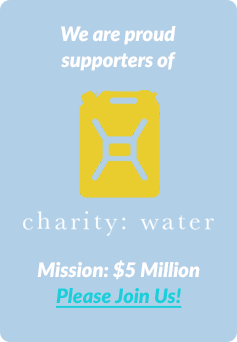To be or not to be, that is the question.
The opening line of Hamlet’s soliloquy is a memorable piece you probably remember from school days. I like to think that perhaps Will could have improved it just a little by the addition of one simple word.
To be happy or not to be happy—now isn’t that an even more interesting question?
Perhaps in changing the tone of the opening line Hamlet might have changed his fate and so turned tragedy into something altogether lighter and containing an entirely different set of possibilities.
Happiness is, after all, a muscle that we could all do with exercising. And our experience of it is, unlike many other things, totally within our own gift. In fact, it’s a choice we can and do make on a daily basis. The more you take this exercise, the more it becomes habit-forming, and this particular habit provides each and every one of us with many of nature’s best kept secret chemicals to boot.
Happiness is defined by Wikipedia as a mental or emotional state of well-being characterized by positive or pleasant emotions ranging from contentment to intense joy.
The benefits of being happy are well documented. Happy people live longer and experience better health than their peers. Happy people tend to be more intelligent than their peers. Happy people tend to be more satisfied with their life.
Happy people tend to feel wealthier, and in a 2005 analysis of 225 studies into success and happiness, researchers concluded that being happy has the side effect of producing a different set of behaviors in people, which resulted in them taking the actions that make them even more successful.
Who amongst us, then, would knowingly put themselves into a state where they didn’t increase their levels of all these factors?
Of course, I’m not ignoring the fact that bad things happen. I know that we’ll all experience something that causes unhappiness in our lives at least once. Being happy doesn’t avoid the emotional upset, nor should it. After all, upset is an important part of the human experience, but happiness makes it significantly easier to weather the ups and downs of life.
In the early 1990s, I had my own opportunity to understand the happiness factor. I had a breakdown that resulted in being cared for 24 hours a day for several months. Although I wouldn’t wish that experience on anyone else, I realize now it was a blessing in disguise, as it gave me a chance to learn what happiness really is and how to exercise my own happiness muscle.
That experience taught me that it’s not tough to change from sad to glad. In fact, I learned that three simple actions improve levels of happiness quickly and easily.
1. Smile
Research shows that the more we smile, the more others smile back at us. As they smile at us so it makes us smile even more. And did you know that smiling produces more happy hormones in us than eating chocolate does? According to the British Dental Health Foundation, a smile gives the same level of stimulation as eating 2,000 chocolate bars!
Smiling releases endorphins, serotonin, and natural pain killers, and studies have shown that people with manic depression can be successfully treated with daily 20 minute sessions of just sitting and smiling.
It seems that smiling is your own personal and completely legal narcotics supply.
2. Help Others
Going out of your way to help someone else, even if it’s just to carry an elderly neighbor’s shopping in from the car makes you feel good about yourself. When you feel good about yourself your base levels of happiness rises… and you smile more!
In the US a study of 2,000 people found that those who helped others were significantly happier and less depressed than those who didn’t.
3. Exercise
Not only do you become happier when you exercise but you also produce more long-term health benefits which improve the immune system. You increase the production of those lovely natural narcotics and create even more long-term feelings of happiness.
As I endured the depression that had caused my breakdown, I came to understand that happiness was mine to choose. I could either take those three simple actions and improve my life experience, or I could remain where I was. I now know that being happier really can make you healthier, wealthier, and wiser, and it really is as simple as smiling, helping others, and exercising.
Tomorrow morning when you climb out of bed at the beginning of yet another day, will you choose to exercise your happiness muscle and begin practicing the move from sad to glad?








